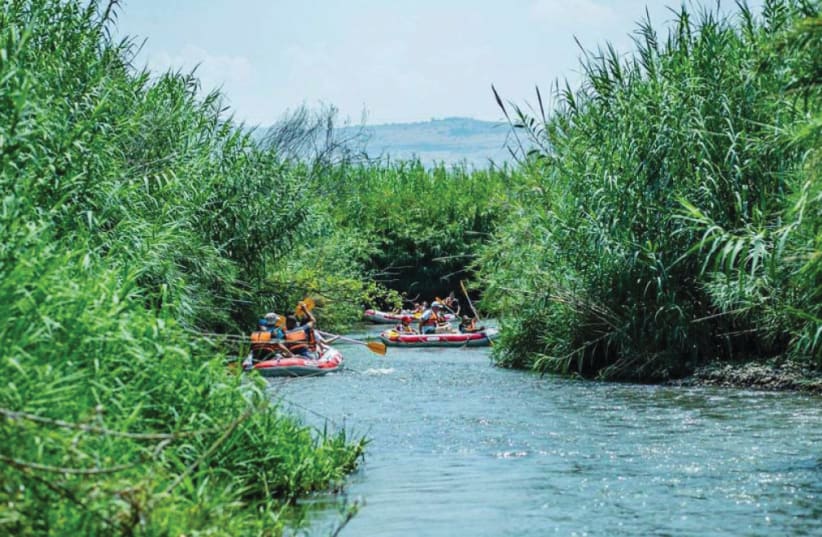The tension at the border has not led to widespread panic, as Israeli travelers continued to visit national parks and restaurants in the Upper Galilee and Golan. The local residents are continuing business as usual and are inviting the public to head up north for a visit.
The rockets that were fired on Friday morning and the tension on Israel's northern border did not deter the many visitors in the area from continuing on with their vacations, according to Eli Ashkenazi of Walla News.
A visitor to the Hermon's "Hills of Battle" trail said that while he and his family saw explosions in the sky, the Hermon area was quiet and they planned on continuing on with their trip. The visitor even praised the comfortable weather on the mountain and recommended it as a good option for people suffering from the sweltering heat.
Another visitor to the Kfar Blum kayaks in the northern Hula Valley said that even though one rocket landed just a few hundred meters away from where she and her family were, they decided to stay on and continue the vacation.
Residents of the area are used to these kinds of situations.
The head of one of Golan regional council said that he and his constituents trust the IDF, and know that when the need comes they will halt all activities. Until then, he said, they would continue on as usual. He called on the public to come visit the rivers and tourist attractions of the Golan Heights.
Yaron Balakhsan, head of the Fruit Growers Association and a farmer from the border town of Ramot Naftali, connected the rockets to the recent farmer's protest's over the government's intention to open the fruit and vegetable market to import.
"We are at the height of the summer-fruit season, and the fruit-picking cannot stop. Unfortunately, we are used to living in this back and forth between routine and emergency situations," he said.
"It is too bad that [Hezbollah head] Nasrallah is the one who reminds the government who lives on the borders and works the nation's lands. Agriculture must continue! Wake up!" he exclaimed.
Despite the steady stream of visitors, some hoteliers were hurt financially by the rocket attacks. An owner of Kibbutz Manara's Manara Lodge said that the lodge had spent the pandemic upgrading its rooms and services, and that the attacks led to some cancellations. He added that he understood that people were afraid, but that he believed that the IDF and especially the people of Israel would not be deterred and would continue coming to visit.
The heavy barrage of close to 20 rockets were fired from Lebanon into northern Israel on Friday, activating the Iron Dome and setting off sirens throughout the area.
Incoming rocket sirens were activated in northern Israeli communities bordering the Lebanese and Syrian borders including Ein Quiniyye, Neveh Ativ and Snir, near Israel’s northern border with Lebanon and Syria.
Hezbollah claimed responsibility for the rocket attacks, in what seems to be the most serious security flare up since the 2006 Lebanon war.
